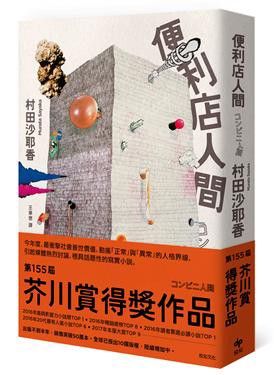Thoughts on "Life in a Convenience Store"
****The text has been minimized with spoilers, but there is still a small amount of story content. To avoid spoilers completely, read the novel first! It's very short, you can definitely read it in two or three days ****
When I find myself thinking differently from most people, I should
A) feel that they are not normal;
B) feel that other people are abnormal; or
C) Is it just different?
Since childhood, Keiko Furukura thought differently from the so-called mainstream of society. Why didn't everyone eat when Xiao Wu died? Why spend so much time trying to stop classmates from fighting? When she grows up, in order to avoid trouble, she pretends to be an "ordinary person" in various ways, and implements this direct thinking without unnecessary troubles.

In the past, it was not normal for women to go out on the street, and it was normal for men to have long hair; Chinese people thought it was normal to eat offal and chicken feet, and it was normal for ghosts to ask "How are you?" We know that the so-called "normal" will change over time and geographically, but we still enjoy making ourselves as "normal" as possible.
There are three issues surrounding "normal" that must be dealt with separately. What is normal/abnormal? What attitude should we take towards things we consider "abnormal"? If the "abnormal" is ourselves, how should we deal with ourselves?
Those who are different from themselves and seldom heard of will be classified as abnormal, and they must be surrounded by pig pens to avoid being affected and polluted by them. This is mainly to prove that oneself is "normal", otherwise it will be difficult to verify the identity of the ruthless white matter, so everyone is working hard to grasp the same place as others, to gain a sense of security, and hope that they are "not so abnormal" . At the same time, it shows that he is superior to others, belongs to the majority of society, and has the right to point fingers at "abnormal" people.
In my opinion, people who always say that other people are "abnormal" are nothing but low self-esteem.
Most people use the word "abnormal" with judgment rather than neutrally synonymous with "minority". Keiko Furukura is the ideal "abnormal" state in such a society. She never questioned herself or other people being abnormal, and even when others thought she was abnormal, she didn't feel too much trouble, and she never criticized other people who were also "abnormal". When things hit her bottom line, she was determined to be her "abnormal" self.
Or, we have not immediately become a society without normal or abnormal, and it is difficult to expect discrimination to be completely eliminated within a generation or two. As a "normal person", I'm even more conscious that I'm not qualified to call the minority "Dai Kaixiu", but at the very least, I want every Keiko Kokura to be able to be themselves at ease, and don't try to force or change them, even if they are Our generation has a lot of merit.
Like my work? Don't forget to support and clap, let me know that you are with me on the road of creation. Keep this enthusiasm together!
